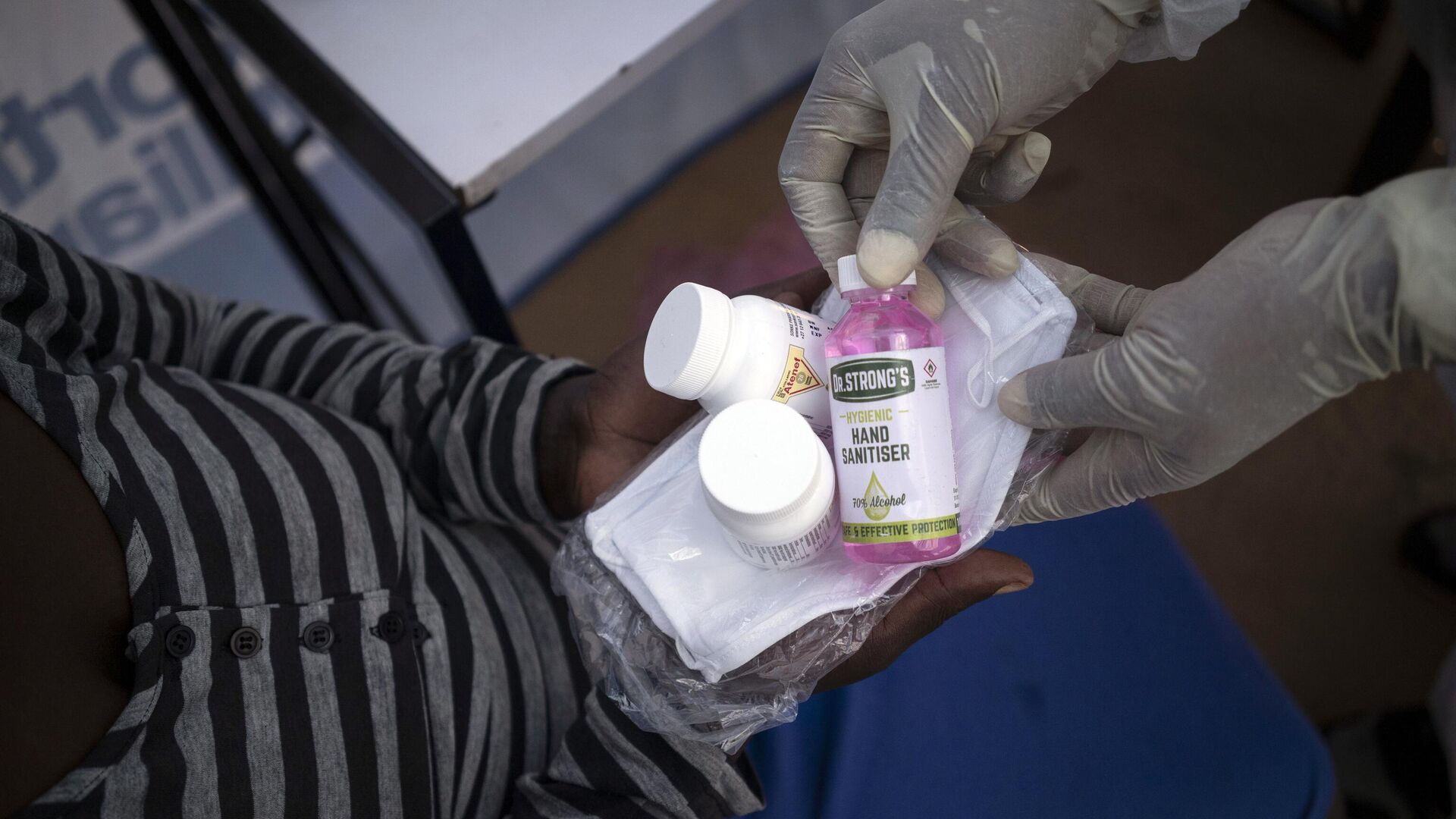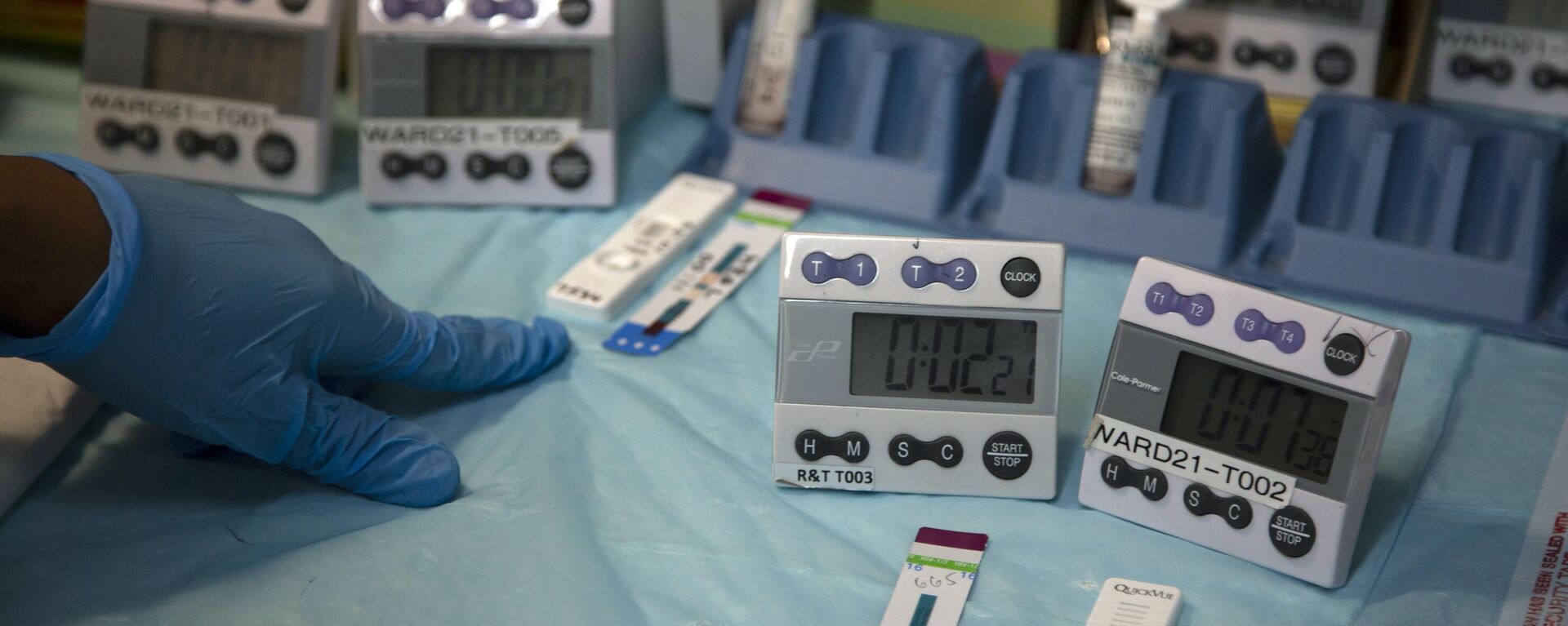https://en.sputniknews.africa/20230522/success-that-cant-be-ignored-expert-on-improved-hiv-statistics-in-malawi-1059410985.html
Success That 'Can't Be Ignored': Expert on Improved HIV Statistics in Malawi
Success That 'Can't Be Ignored': Expert on Improved HIV Statistics in Malawi
Sputnik Africa
In most of the countries across Africa, and in particular in Malawi, HIV incidence has been decreasing due to global efforts aimed at improving HIV/AIDS treatment adherence, said Adamson S. Muula in an interview with Sputnik.
2023-05-22T17:37+0200
2023-05-22T17:37+0200
2023-05-23T12:36+0200
sub-saharan africa
hiv/aids
africa insight
malawi
vaccine
healthcare
world health organization (who)
southern africa
https://cdn1.img.sputniknews.africa/img/07e7/05/06/1059085010_0:96:3072:1824_1920x0_80_0_0_06ee57f0d4aa2dd798cdf899b3f229f0.jpg
In most countries across Africa, and in particular in Malawi, HIV incidence has been decreasing due to global efforts aimed at improving HIV/AIDS treatment adherence and reducing HIV transmission, said Adamson S. Muula, professor and head of community and environmental health at Kamuzu University of Health Sciences, Malawi, in an interview with Sputnik.On May 18, the world observed AIDS Vaccine Day aimed at raising awareness about the need for an HIV/AIDS vaccine. Muula highlighted that "even without a vaccine, which if available would have been a game changer," the world can still recognize that HIV incidence has been declining in recent years.The professor cited official statistics indicating that adult HIV prevalence in Malawi stands at 8%, a major decrease from 14% registered about a decade ago.According to Muula, success in the fight against HIV has been achieved "through a multi-sectoral and global effort," including biomedical and non-biomedical interventions. He noted that the most critical intervention is an availability of antiretroviral treatment. The use of combined antiretroviral therapy (ART) allows to effectively suppress the viral load and preserve immune function.The WHO report indicated that in 2017, 15.3 million people living with HIV in Africa were accessing life-saving antiretroviral drugs (ARVs), representing 70% of the 21.7 million people accessing antiretrovirals globally.The professor also pointed to a decrease in HIV infections among newborns, explaining that "this has been due to the almost universal HIV testing for pregnant mothers" in the countries with highest rates of the disease and provision of HIV treatment for those found infected.Despite major improvements and progress made, he underlined, there are some issues that are of great concern, including the fact that women and adolescents represent a growing share of people living with HIV.According to the Joint United Nations Program on HIV/AIDS (UNAIDS), in sub-Saharan Africa, six in seven new HIV infections among adolescents aged 15–19 years are among girls. Girls and women aged 15-24 years are twice as likely to be living with the disease than young men. In 2021, girls and women accounted for 63% of all new HIV infections in the region.Muula added that HIV-infected men also "continue to be under-served," as many of them face various barriers and hindrances, trying to gain life-saving access to health services.The professor also touched upon the issue of HIV discrimination, highlighting that "the battle is not fully won on this front." However, he underscored, the progress is remarkable, as "more and more people are accepting and tolerant towards each other."
https://en.sputniknews.africa/20221201/1058498507.html
https://en.sputniknews.africa/20230519/south-africa-to-produce-hiv-prevention-medication-1059351331.html
malawi
southern africa
Sputnik Africa
feedback@sputniknews.com
+74956456601
MIA „Rossiya Segodnya“
2023
News
en_EN
Sputnik Africa
feedback@sputniknews.com
+74956456601
MIA „Rossiya Segodnya“
Sputnik Africa
feedback@sputniknews.com
+74956456601
MIA „Rossiya Segodnya“
hiv/aids treatment, hiv incidence, malawi, southern africa, world aids vaccine day
hiv/aids treatment, hiv incidence, malawi, southern africa, world aids vaccine day
Success That 'Can't Be Ignored': Expert on Improved HIV Statistics in Malawi
17:37 22.05.2023 (Updated: 12:36 23.05.2023) According to the World Health Organization (WHO), the human immunodeficiency virus (HIV) remains a major global public health issue, having claimed about 40 million lives globally. In 2021, 38.4 million people were living with HIV, two thirds of whom were from Africa.
In most countries across Africa, and in particular in Malawi, HIV incidence
has been decreasing due to global efforts aimed at improving HIV/AIDS treatment adherence and reducing HIV transmission, said
Adamson S. Muula, professor and head of community and environmental health at Kamuzu University of Health Sciences, Malawi, in an interview with
Sputnik.
On May 18, the world observed AIDS Vaccine Day aimed at raising awareness about the need for an HIV/AIDS vaccine. Muula highlighted that "even without a vaccine, which if available would have been a game changer," the world can still recognize that HIV incidence has been declining in recent years.
The professor cited official statistics indicating that adult HIV prevalence in Malawi stands at 8%, a major decrease from 14% registered about a decade ago.
"At the largest tertiary hospital in Blantyre, 20 years ago, 33% of pregnant mothers were living with HIV. Now it is about 6%. This is still high, but the progress made so far cannot be ignored," he said.
According to Muula, success in the fight against HIV has been achieved "through a multi-sectoral and global effort," including biomedical and non-biomedical interventions. He noted that the most critical intervention is an availability of antiretroviral treatment. The use of combined antiretroviral therapy (ART) allows to effectively suppress the viral load and preserve immune function.
The WHO report indicated that in 2017, 15.3 million people living with HIV in Africa were accessing life-saving antiretroviral
drugs (ARVs), representing 70% of the 21.7 million people accessing antiretrovirals globally.
The professor also pointed to a decrease in HIV infections among newborns, explaining that "this has been due to the almost universal HIV testing for pregnant mothers" in the countries with highest rates of the disease and provision of HIV treatment for those found infected.
Despite major improvements and progress made, he underlined, there are some issues that are of great concern, including the fact that women and adolescents represent a growing share of people living with HIV.
"Sadly, adolescents and young women continue to be infected more than their much older counterparts. We are not saying that the tables need to be turned, rather we are saying that adolescents and young women need to be prioritized," Muula stressed.
According to the Joint United Nations Program on HIV/AIDS
(UNAIDS), in sub-Saharan Africa, six in seven new HIV infections among adolescents aged 15–19 years are among girls. Girls and women aged 15-24 years are twice as likely to be living with the disease than young men. In 2021, girls and women accounted for 63% of all new HIV infections in the region.
Muula added that HIV-infected men also "continue to be under-served," as many of them face various barriers and hindrances, trying to gain life-saving access to health services.
"Sadly, men who do not access the health system are taken as problematic, instead of us all appreciating and solving the impediments which many men face," he said.
The professor also touched upon the issue of HIV discrimination, highlighting that "the battle is not fully won on this front." However, he underscored, the progress is remarkable, as "more and more people are accepting and tolerant towards each other."



